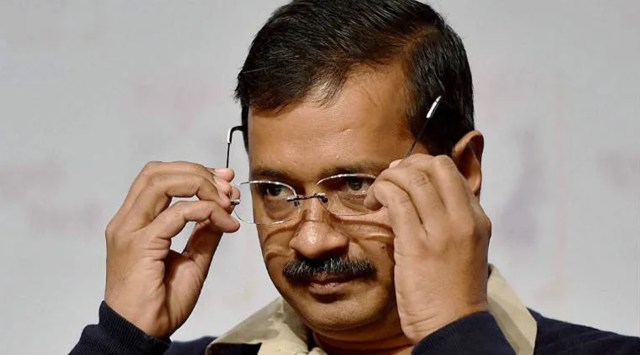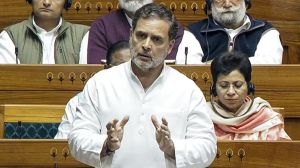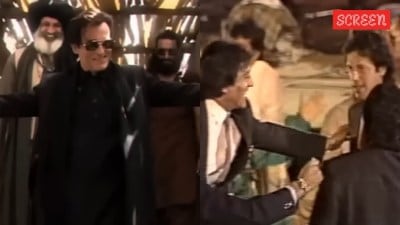Delhi liquor policy case: Kejriwal challenges court summons, seeks exemption from physical appearance on March 16
A court had summoned Kejriwal to appear before it on March 16 after the ED filed a complaint saying he had skipped the summons in the Delhi liquor policy case.
 Arvind Kejriwal had recently written to the ED, saying he was ready to answer the central agency’s questions. (File)
Arvind Kejriwal had recently written to the ED, saying he was ready to answer the central agency’s questions. (File)Challenging a summoning order issued to him by a court, following two complaints by the Enforcement Directorate (ED) over his alleged non-compliance in the Delhi excise policy case, Chief Minister Arvind Kejriwal Thursday argued that the person who issued the summons in the case should have filed the complaint in court — which, he said, was not the case.
He pointed out that the complainant is Assistant Director (ED) Sandeep Kumar Sharma and the person who summoned him is IO Joginder.
The ED had last Wednesday, for the second time, moved Rouse Avenue Court and filed a complaint against Kejriwal for allegedly not complying with its summons — eight have been issued so far — in the Delhi liquor policy case. Additional Chief Metropolitan Magistrate (ACMM) Divya Malhotra then summoned Kejriwal to appear before it on March 16.
The CM moved court on Thursday, challenging the magistrate court’s order, and requested an exemption from physical appearance on Saturday.
Kejriwal has filed two revision petitions against two summons issued by the ACMM Court. While Senior Advocate Ramesh Gupta is appearing for Kejriwal in one, advocate Rajiv Mohan is appearing in the other.
While the judge was hearing the first revision petition, the main issue being argued was who is the public servant “concerned” who must write the complaint.
Gupta argued this had to be IO Joginder, but Additional Solicitor General (ASG) SV Raju, on behalf of the ED, said it could’ve been a different officer as well.
Gupta said, “… only two people can file a complaint. One is a public servant concerned (in this case IO Joginder who summoned him) or his superior. So, therefore, in this case, this complaint is barred by Section 195 of CrPC. Therefore, taking cognizance is also barred.”
“Sandeep Kumar Sharma is a public servant ‘concerned’ as he is the co-investigating officer in the case… he is equally authorised to issue summons as IO Joginder,” argued ASG Raju, while calling both Sharma and Joginder of equal ranks.
“… he (Kejriwal) says he is an aam aadmi, he claims to be representing the aam aadmi. Can he be allowed to make excuses like these? He says ‘mujhe udghatan karna hai, vipasana me jaana hai… Ek aam aadmi aese karta to kya Court usko allow karte?” added Raju.
Gupta replied: “ED has 50 IOs. Sandeep never said he was the successor IO for Joginder. The complaint has to be by the officer ‘concerned’,” reiterated Gupta.
“Agar mujhe kahi jaana hai aur agar main nahi aa paaya to kya warrant issue kar doge (Suppose I have to go somewhere and I’m unable to comply with the agency’s summons, will you issue an arrest warrant against me)?” said Gupta, stating that it would serve no purpose if Kejriwal appeared in court.
“The ASG is appearing before the court when the maximum punishment under Section 174 IPC (non-attendance following an order by a public servant) is only one month and the fine is 1,000,” said Gupta.
On February 3, after he skipped its fifth summons, the ED filed a complaint against the CM in court under CrPC sections 190 and 200 for not complying with the summons issued under Section 50 of the Prevention of Money Laundering Act (PMLA) and not joining the investigation. The court had then told Kejriwal to appear before it on February 17. The AAP national convenor appeared before the court on the said date via video-conferencing, saying he could not appear physically due to the confidence motion and Budget Session in the Delhi Assembly.







